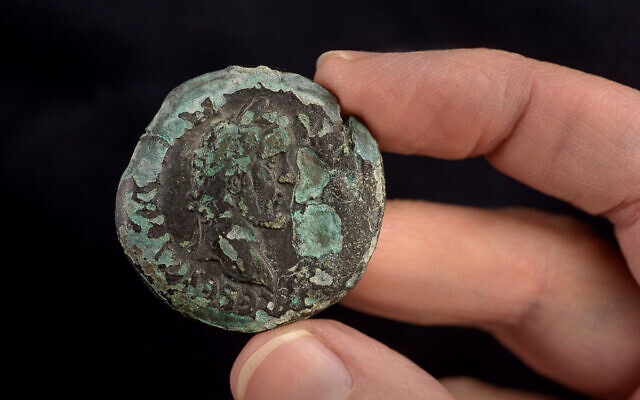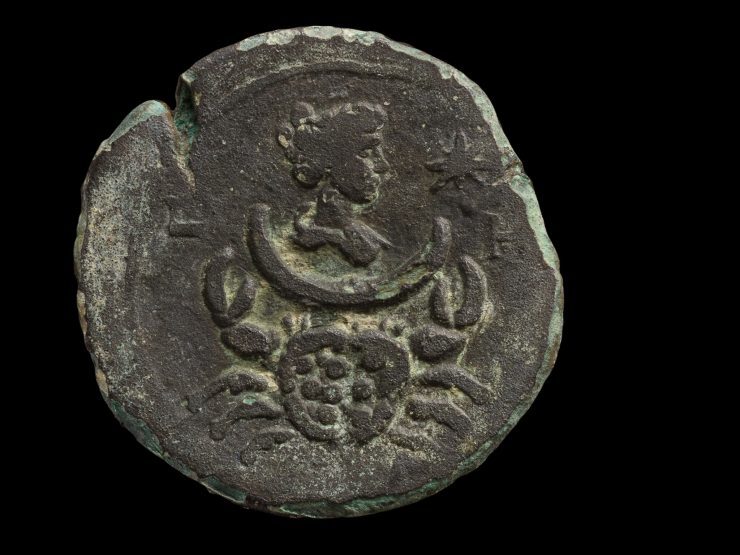According to the Israel Antiques Authority, an unique 1,850-year-old bronze coin representing the Roman Moon goddess Luna was recently discovered off the coast of Haifa.
On the coin, moon goddess Luna is seen atop a picture of Cancer. The image of Antoninus Pius, the Roman Emperor who ruled from 138 to 161 CE, appears on the coin’s reverse.
The coin was discovered on the ocean floor by the Marine Archaeology Unit of the Israel Antiquities Authority while conducting a survey to safeguard artifacts from coastal development. The exact time the coin was found was not disclosed.
According to unit director Jacob Sharvit, this is the first time such a coin has been discovered off the coast of Israel. “It is a rare addition to the National Treasures collection,” he said.
These discoveries, some of which are incredibly rare and whose discovery completes pieces of the historical puzzle of the country’s past, have been amazingly well preserved despite having been lost at sea and hidden from view for hundreds and thousands of years.
According to IAA numismatics expert Lior Sandberg, who identified the coin, it belongs to a series of 13 coins, 12 with the signs of the zodiac and another with a complete zodiac wheel.
Sandberg said the coin was produced in Alexandria, Egypt, and is dated “year eight,” the eighth year of Antoninus Pius’s rule, or 144/145 CE.



According to the IAA, Antoninus’ reign was the quietest of the Roman Empire, occurring at the height of the Pax Romana, or Roman calm, and Antoninus himself was not from the military, was never in war, and never even left Rome.
“During his reign, the empire’s ties with the Jews were significantly improved, Hadrian’s restrictions were repealed, and Jews were permitted to practice circumcision,”
“These steps led to good ties between the emperor and Rabbi Yehuda ha-Nasi,” the statement claimed, referring to the rabbinic authority who wrote the Mishnah in the second century CE.
Director of the Israel Antiquities Authority Eli Eskosido stated that Israel has changed its perspective of the sea over the past ten years and that it is “now recognized as an integral part of it, in terms of its cultural heritage, in addition to security considerations, and in terms of strategic and economic concerns.”
According to Eskosido in the statement, “Israel’s territorial seas contain natural riches and cultural values that must be investigated and protected in light of various interests and possible development.”
“The maritime survey off the coast of Haifa is part of this process.” “The uncommon coin discovered during the survey serves as a stark reminder of the survey’s value,” Eskosido remarked.
While the waters near Haifa are undisputed, Israel is engaged in indirect maritime border negotiations with Lebanon related to offshore gas development and exploitation.
A 900-year-old Crusader sword was discovered last year by a recreational diver off the Carmel Coast. The IAA stated in a statement at the time that it appeared that waves and undercurrents had moved sand to disclose the object.
